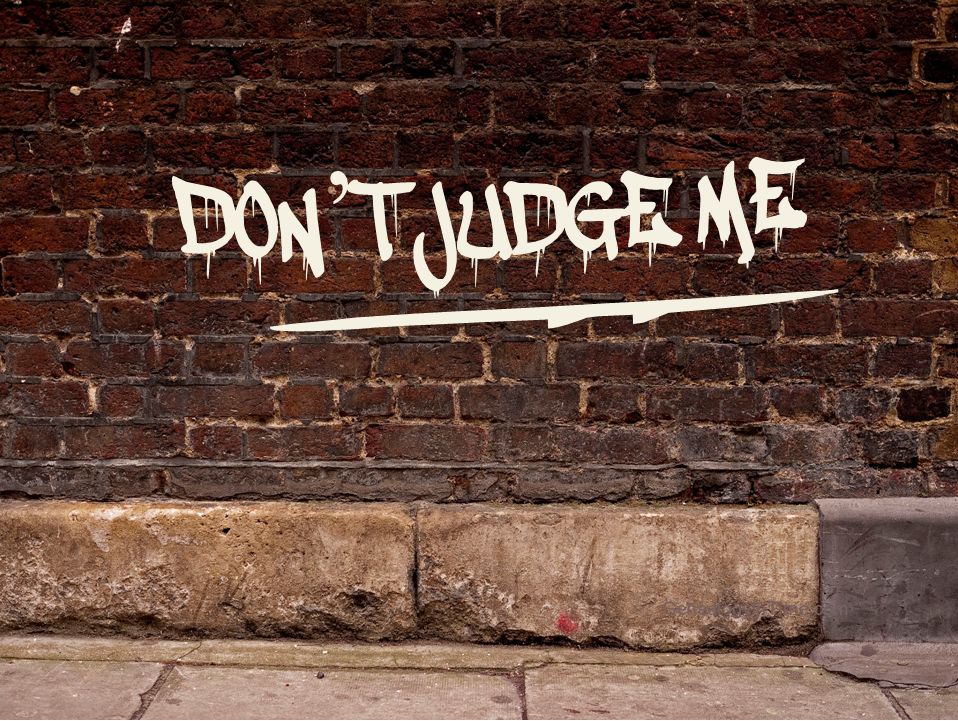 When my wife and I were first married, we lived in Chattanooga, Tennessee. One day we received notice that there would be a neighborhood meeting at a church in our community. Out of curiosity, we went. One of the complaints being addressed was that of speeders on the local streets. The police officer in attendance, while sympathetic to the cause, informed us that they had the same complaint in another neighborhood. To remedy the problem, a speed trap was set up. Wouldn’t you know it—most of the offenders they caught were residents of the neighborhood.
When my wife and I were first married, we lived in Chattanooga, Tennessee. One day we received notice that there would be a neighborhood meeting at a church in our community. Out of curiosity, we went. One of the complaints being addressed was that of speeders on the local streets. The police officer in attendance, while sympathetic to the cause, informed us that they had the same complaint in another neighborhood. To remedy the problem, a speed trap was set up. Wouldn’t you know it—most of the offenders they caught were residents of the neighborhood.
That’s human nature, isn’t it? We seem to be more concerned about the behavior of other people than our own.
Well, guess what? It’s nothing new. Even Jesus was faced with some people just like that.
One morning, as Jesus was sitting in the Temple teaching the crowd that gathered around Him, His monologue was interrupted by a group of Scribes and Pharisees who mercilessly dragged a woman in and demanded of Him to make a judgment against her.
Now early in the morning He came again into the temple, and all the people came to Him; and He sat down and taught them. Then the scribes and Pharisees brought to Him a woman caught in adultery. And when they had set her in the midst, they said to Him, “Teacher, this woman was caught in adultery, in the very act.”Now Moses, in the law, commanded us that such should be stoned. But what do You say?” (John 8:2-5 NKJV)
Although we do not usually speak of the Scribes and Pharisees in a good light, they were the religious people. They knew the Law and tried to live accordingly. However, their outward obedience was coupled with an air of self-righteousness, which is exactly why they brought this woman to Jesus (in a public setting, I may add). They wanted to see what He would do with her.
Before we move along, it is necessary to point out that this woman definitely deserved punishment. This was not an indictment over a trumped-up charge.
The accusation was merited
As we look at this account, we want to be sure that we do not glorify this woman. What she did was wrong. She was caught “in the very act” of adultery.
Of course, that raises the question of the identity of the man involved—but he is conspicuously absent. We could speculate on whether he had been able to escape the Pharisees’ sting operation or if he was a “plant” to catch the woman, but we cannot be sure. Regardless, she was guilty and deserved punishment. The Law of Moses said so.
The man who commits adultery with another man’s wife, he who commits adultery with his neighbor’s wife, the adulterer and the adulteress, shall surely be put to death. (Leviticus 20:10 NKJV)
Other than the fact that the dude was missing, these folks had a legitimate case. According to the Law, yes, the woman should be stoned. However, Jesus knew that they were not seeking the purity of Israel. It was a setup.
The accusation was a trap
There was no concern for the woman who had messed up her life. There was no concern for the purity of Israel. The object was to find some accusation against Jesus.
This they said, testing Him, that they might have something of which to accuse Him. (John 8:6a NKJV)
If He commanded them to spare her, He would be disobeying the Law. However, if He said to kill her, where would be His mercy? They smugly assumed they had Him over a barrel.
Nevertheless, Jesus saw through it. His gaze pierced past the flowing robes to the stench of wickedness and filth inside them, and that was just as bad as the woman’s adultery. Maybe even worse because it was covered up with hypocrisy and finger-pointing.
For the moment, Jesus was more concerned with the hypocrisy of the accusers than the adultery of the woman. He would deal with that later. Right now, though, He was not about to be used as a pawn.
What would He do? In my estimation, two choices were available.
Option #1: He could condemn her to death. If He did so, His mercy and love would be in question. Maybe they would even blame Him for being “anti-woman” because He only condemned the woman, and not the man.
Option #2: He could order her to be treated with mercy and set free. If He chose that route, the accusers would be vindicated in their belief that Jesus was a lawbreaker.
While these may seem to be the only two available options, Jesus chose option #3.
Remember those tests in school where you chose option D, “none of the above,” because A, B, and C did not seem to fit? That’s what Jesus did. Options 1 and 2 were not acceptable, so He went with something entirely different, striking a balance like only the Son of God could. He did not condemn her, but neither did He condone her sin. In the process of doing so, the accusers became the accused.
The accusers were accused
Yes, the woman was guilty. Jesus had to admit that fact. She deserved to die. However, instead of offering His own judgment on the matter, He crouched down and wrote something on the ground.
But Jesus stooped down and wrote on the ground with His finger, as though He did not hear. So when they continued asking Him, He raised Himself up and said to them, “He who is without sin among you, let him throw a stone at her first.” And again He stooped down and wrote on the ground. Then those who heard it, being convicted by their conscience, went out one by one, beginning with the oldest even to the last. And Jesus was left alone, and the woman standing in the midst. (John 8:6b-9 NKJV)
What did Jesus write on the ground? Apparently it does not matter if we know. What does matter is what happened next.
Jesus agreed that the woman deserved to be stoned as punishment for her sin. However, He also advised that the person in the crowd who did not have any of his own sin should lead the charge. The one without sin gets to throw the first stone.
This brings to mind the story of a band of natives in the jungle who attacked a kingdom and stole the king’s throne. After carrying the prize to their village, one of the men offered to keep it in the loft of his grass hut until they could decide what to do with it. His friends helped him rig up a pulley system that they used to carefully set the throne in its place.
Unfortunately, sometime in the middle of the night, the thatch floor buckled under the weight of the throne and it fell in, killing the man.
The moral of the story: Those who live in grass houses shouldn’t stow thrones.
Yeah, I know. It’s a sorry joke.
When we say that “those who live in glass houses shouldn’t throw stones,” we mean that it is dangerous to point out the sin of other people when our own sins are evident to all. What Jesus did was point out the hypocrisy of the accusers.
That took a little of the wind out of their sails. I can envision them one by one dropping the stones that they were preparing to heave at the woman. As they considered their own sins, their attitude changed from one of arrogance to “Maybe I better not go first.”
Then Jesus started writing on the ground again. Maybe He was writing down the sins of the accusers. Maybe He was writing down names of their secret “lady friends.” All we know is that one by one, the accusers backed away. They each realized that their guilt disqualified them from passing judgment on the woman.
When Jesus looked up, the woman was standing alone.
When Jesus had raised Himself up and saw no one but the woman, He said to her, “Woman, where are those accusers of yours? Has no one condemned you?” She said, “No one, Lord.” And Jesus said to her, “Neither do I condemn you; go and sin no more.” (John 8:10-11 NKJV)
Notice that Jesus did not excuse this woman’s sin. He did not say, “Your sin is okay. After all, everyone else is doing it.” He commanded her to turn away from it!
The point of this whole account is not that Jesus let a sinful woman go free, although that is often our focus. He recognized her sin and agreed that she deserved punishment. The real lesson is that God has no use for the condescending, arrogant attitudes of self-righteous people.
Maybe we need to ask God to help us see our own faults before we spotlight the sins of those around us. Why don’t you ask God to help you look at yourself through the same lens you use for others?
Click here to read the previous article, A Case for Judging – A Restored Brother.
Click here to read the next article, Steps to Reconciliation.


